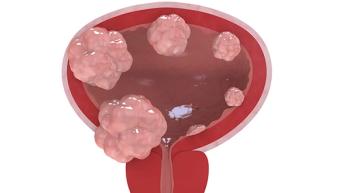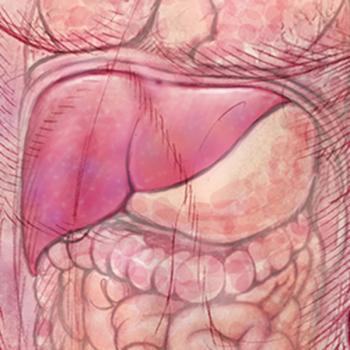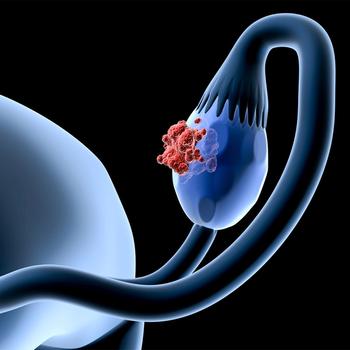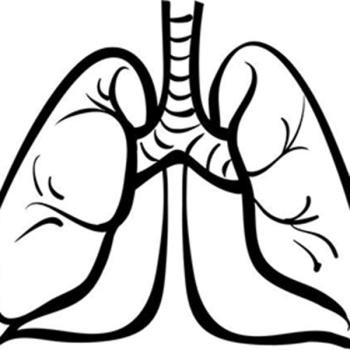
Genomic testing of gastrointestinal tumors can be essential to proper treatment.

Genomic testing of gastrointestinal tumors can be essential to proper treatment.

The role of precision medicine has become a significant area of study, specifically with genomics and liquid biopsies. With the introduction of next-generation sequencing and an improvement in the understanding of molecular alterations, treatments for patients have begun to be individualized.

Ferdinandos Skoulidis, M.D., Ph.D. highlights potential treatment options for KRAS-mutated lung cancer and explores developments in biomarker research in other areas in the field.

When combined with other regimens in the treatment of patients with bladder cancer, immunotherapy has been shown to be beneficial, according to Arjun Balar, M.D.

The variety of treatment options now available for non-small cell lung cancer (NSCLC) — including checkpoint inhibitors and targeted therapies — presents challenges in choosing the right treatment plan.

Imfinzi (durvalumab), a PD-L1 inhibitor, is being reviewed for a supplemental biologics license application (sBLA) by the Food and Drug Administration (FDA) for the treatment of patients with stage 3, unresectable non-small cell lung cancer (NSCLC). The sBLA is in light of positive progression-free survival (PFS) results from the phase 3 PACIFIC trial.

Chronic pain is a serious side effect of many cancer treatments. Medical marijuana is currently being suggested as an alternative option to traditional opioid medications.

“The very exciting field of checkpoint inhibitors is still evolving, and we are trying to understand where they fit in the world of CRC therapy,” said McCollum, a hematologist and medical oncologist at Texas Oncology.

New treatment regimens may be hitting the scene of myeloma treatment.

Alfred L. Garfall lends insight as to what is new for myeloma treatment.

In an interview with CURE, Postow, a medical oncologist specializing in melanoma at Memorial Sloan Kettering Cancer Center, discussed the impressive efficacy seen with combining BRAF and MEK inhibitors for patients with melanoma.

While the use of Jakafi (ruxolitinib) is firmly rooted in the treatment paradigm for patients with myelofibrosis, other novel agents, such as momelotinib and pacritinib are also gaining the interest of researchers in the field.

Research into combination approaches now focuses on using three anti–PD-1 therapies and new checkpoints, such as IDO.

The combination of the immunotherapies Opdivo (nivolumab) and Yervoy (ipilimumab) sparked a response in nearly half of asymptomatic patients with melanoma brain metastases who had not received prior local therapy to the brain.

Although chemotherapy has been used to treat patients with Merkel cell carcinoma, immunotherapy agents show great promise, according to findings presented at the 2017 World Congress of Melanoma.

Intralesional therapies – those delivered directly to the tumor site – used in conjunction with checkpoint inhibitors have shown improvements to the treatment of people with melanoma, says Robert Andtbacka, M.D., in a presentation at the 2017 World Congress of Melanoma.

Quality of care for patients being treated for urothelial carcinoma could be improved by having a multidisciplinary team treat the patient, says Robert Jones, M.D.

Immunotherapy combinations are inducing higher and more durable responses for patients with non-small cell lung cancer (NSCLC), sparking excitement in the oncology community.

After nearly a decade with no new therapies, new drugs to treat liver cancer are showing great promise, according to Steven R. Alberts, M.D.

The future for immunotherapy treatment for gynecologic cancers may be found in drug combinations, according to Dmitriy Zamarin, M.D., Ph.D., who admits that these agents have been slower to demonstrate progress in this group of patients.

There is a relationship between the genetics of BRCA1 and BRCA2 mutations and the risk of a patient with breast or ovarian cancer being resistant to platinum-based chemotherapy, according to recent research conducted at the Perelman School of Medicine at the University of Pennsylvania. The study’s senior author Katherine Nathanson, M.D., spoke with CURE about these findings.

A novel agent is attacking a newly found target in patients with acute myeloid leukemia (AML).

Jonathan E. Rosenberg, M.D., discusses the implications of the new treatment guidelines for muscle-invasive bladder cancer.

RET rearrangements, while they only occur in about 1 percent of patients with non-small cell lung cancer, are nevertheless an important biomarker to identify, since targeted agents have proven to be beneficial in this patient population, and realizing a patient has the mutation can greatly impact their treatment plan, says Christine M. Lovly, M.D., Ph.D.

David R. Gandara, M.D., discusses the latest immunotherapy advances in lung cancer, as well as the next steps toward optimizing the use of these agents.

Medicine is becoming more personalized for patients with breast cancer as physicians continue to understand both the disease itself and genomic testing that can lead to more optimal treatment plans.

In an interview with CURE, Badani, a professor of Urology at Mount Sinai Hospital, discusses the benefits of robotic surgery in RCC.

A new agent showed a favorable toxicity profile for patients with epithelial ovarian cancer. The drug, mirvetuximab soravtansine (IMGN853), also demonstrated encouraging clinical activity in a phase 1 trial presented at the 2017 American Society of Clinical Oncology (ASCO) Annual Meeting.

Future treatment of ovarian cancer will include more interaction between molecular pathology and clinical pathology where genetic information can lead to more accurate pathologic diagnosis.

Keytruda (pembrolizumab) and Rituxan (rituximab) showed promising results for patients with follicular lymphoma in a recent study.

Published: January 12th 2017 | Updated:

Published: January 17th 2017 | Updated:

Published: January 21st 2017 | Updated:

Published: January 23rd 2017 | Updated:

Published: January 24th 2017 | Updated:

Published: January 26th 2017 | Updated: